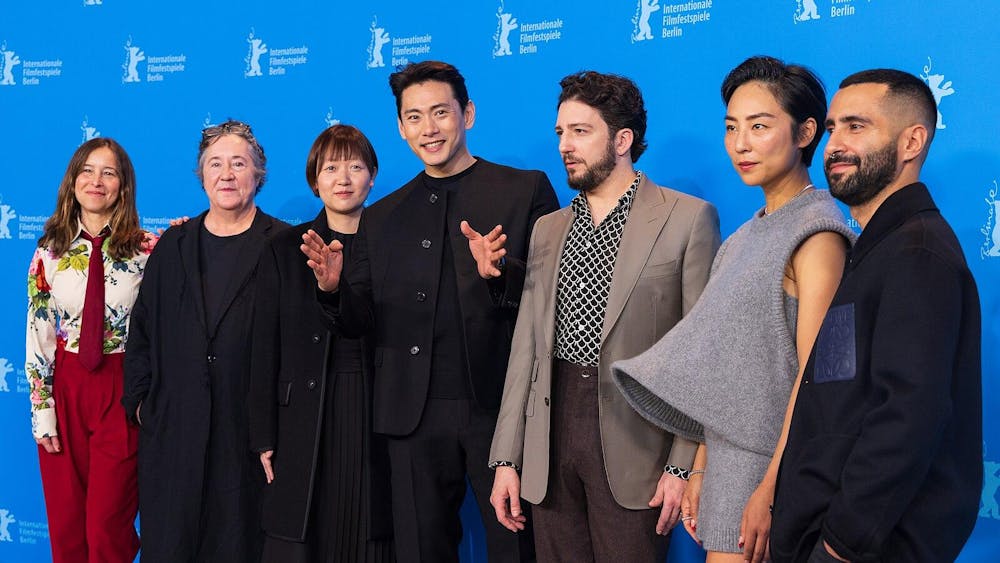I’ve always wondered, is it a blessing or a curse to experience first love, only to be ripped apart by circumstance? This question has inspired the plots of many films before, still, “Past Lives” could not have provided a better, fresher depiction of this heart-breaking question.
At the mention of “Past Lives” showing at the Princeton Garden Theater, my friends gushed raving reviews and flashed me judgmental stares when I revealed that I had never seen this 2023 Oscar-nominated film. I went to the theater with high hopes.
Even so, the film surpassed my expectations. This indie film released in January 2023 initially appears to portray the classic trope where childhood sweethearts reconnect and find love in adulthood, but it subverts that trope with sobering realism.
Na Young and Hae Sung are inseparable as they grow up together in Korea, but once Na Young emigrates to the United States, they lose contact with one other. Years later, Na Young has become “Nora Moon” and lives in New York City as an aspiring playwright, while Hae Sung remains in Seoul as a student. The two reconnect online and the rekindling of emotion is immediate — palpable even through a screen. A one-time catch up video call soon turns into lengthy daily conversations and a rekindled, unofficial relationship, until Nora calls things off. The two cannot visit each other and should fully focus on their respective lives, she reasons.
Twelve years later, Nora is married, but she and Hae Sung reconnect again when he visits New York City. During this visit, their feelings resurface, but they also recognize the impossibility of being together, at least in this lifetime. Maybe in a past life, or an afterlife, they can realize the full potential of this ill-timed love.
It strikes me as extremely refreshing that barely any physical touch or dramatic emotions are involved to progress the story; instead, the film is upheld by palpable tension, charged glances, and clever cinematography.
The incorporation of dry humor also juxtaposes the painful situations of the movie. When Nora explains to her husband that her childhood sweetheart is visiting New York City, he nods in painful acceptance and falls silent for a few beats. He then deadpans: “If this was a story someone was telling, I’d be the evil white American husband keeping you two apart.” This was met by a large round of laughter from the audience. The movie’s display of self-awareness broke the fourth wall between the movie and viewer. I especially like that the movie knows it leans closely into a romantic trope, owning it while providing its own spin.
Visually, in every scene a gentle blanket of minimalism is draped beautifully as the film relies on deft cinematography to tell the story. One of the most memorable shots captures Nora’s last day in Korea before she emigrates. When her and Hae Sung split to leave, the camera captures their backsides as they walk in the same direction but on diverging paths. Nora walks upward on a staircase, while Hae Sung walks forward on flat ground. It is incredibly straightforward, but symbolic of the different paths their lives are taking and the widening gap that separates them. The minimalism works in favor of the simple storyline.
The film also does a beautiful job of exploring the moral grayness of the characters. Nora may have married Arthur for the main intention of obtaining a green card in the United States. Hae Sung, while aware that Nora is married, flies to New York City to see her. Interestingly, it is Nora’s husband who suffers the brunt of the situation, even though he has done absolutely nothing to deserve disloyalty. He is very devoted to Nora, even learning Korean and immersing himself in the culture to better understand her identity. He is uneasy upon Hae Sung’s arrival, but keeps his grace and does not hold Nora back from reconnecting with her childhood friend. Everybody suffers in the story; the only villain might be fate.
With its signature touch of realism, the film masterfully explores complex themes including the dynamics of interracial relationships, immigration, and most of all, the infinite “what-if’s” of love. As someone who is used to being fed the idealistic, cliché epilogues of rom-com novels, I was not prepared for the jarring realism that leaves the audience craving more at the end. Once the credits started rolling, I remember thinking, “There must be more!”
I find it difficult to pinpoint any flaws in this film, besides the fact that I was demanding for it to be longer. Frankly, I left the theater feeling the most unfulfilled that I had ever felt after a movie, but also realized that was the point — that was the beauty of the film.
Above all, “Past Lives” is a melancholy story exploring the tragic and wonderful pain of love that cannot be. It provoked an incredible amount of introspection about my own life, and touches on the concept of multiple pathways of lives, which seems to be trending more in movies in recent years. Fans of “Everything, Everywhere, All at Once” and “The Notebook” are sure to be intrigued by this film.

Shannon Ma is a staff writer for The Prospect. She is in the Class of 2027 and comes from Saratoga, California. She can be reached at sm2818@princeton.edu.








